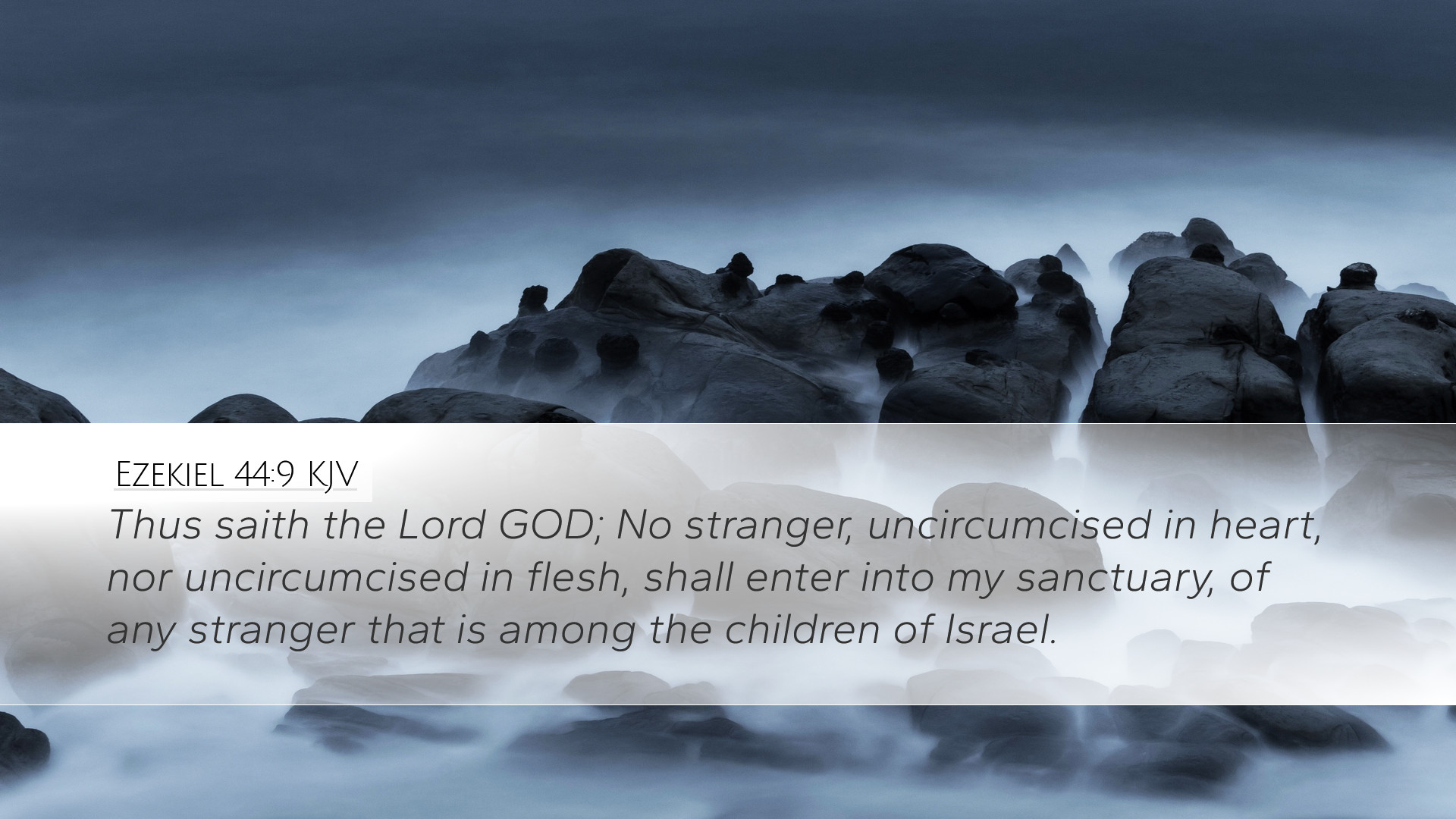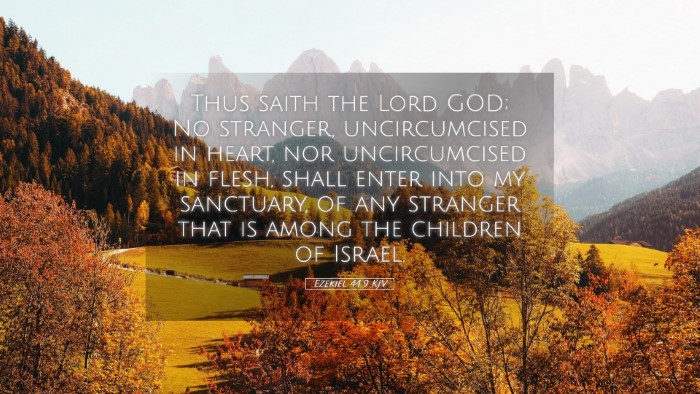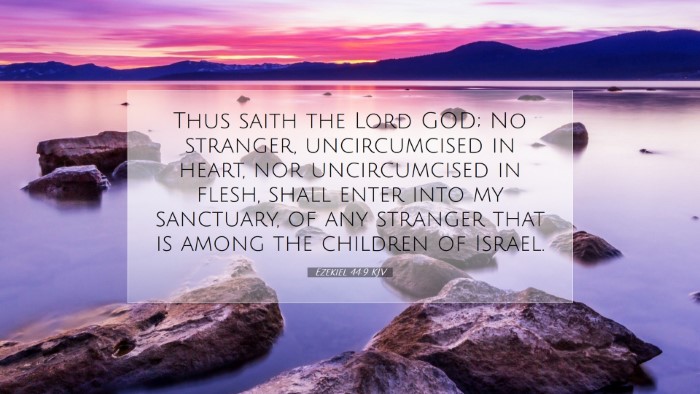Commentary on Ezekiel 44:9
Ezekiel 44:9 states: "Thus saith the Lord God; No stranger, uncircumcised in heart, nor uncircumcised in flesh, shall enter into my sanctuary, of any stranger that is among the children of Israel." This verse presents a profound insight into the nature of access to the sanctuary of God and the requirements for holiness and fidelity in worship.
Contextual Background
This proclamation comes within the larger context of Ezekiel's vision of the new temple and the regulations governing worship therein. After the destruction of the original temple, Ezekiel provides a corrective framework for Israel's worship, focusing on purity and exclusivity concerning access to God's presence.
The Necessity of Circumcision
The term 'uncircumcised' is used both in a literal and metaphorical sense. Matthew Henry notes that circumcision was a sign of the covenant with God, representing an inward condition of the heart, reflecting one's commitment to God. In this sense, 'uncircumcised in heart' signifies those who do not possess genuine faith and devotion.
Albert Barnes elaborates that the spiritual state of an individual is paramount. He emphasizes that merely being a descendant of Abraham (physical circumcision) is inadequate for worship; one's heart must also be circumcised, implying the need for repentance and transformation. This idea aligns with the New Testament's teaching that true worshipers must worship in spirit and truth (John 4:24).
Exclusivity in Worship
The verse emphasizes exclusivity in the sanctuary regarding who may enter. Adam Clarke explains that God's sanctuary is sacred, requiring purity not only in physical terms but also in moral and spiritual dimensions. During Ezekiel's time, Israel was often infiltrated by idolatrous practices and unclean conduct from outsiders, and this decree serves as a divine safeguard against such influences.
Significance for Today
For contemporary readers, this verse underscores the importance of holiness in approaching God. Pastors and theologians alike can draw from this passage the essential teaching that access to God is not something to be taken lightly. Henry expounds that those who desire to worship must do so with an understanding of the seriousness of their spiritual state.
Moreover, Barnes encourages believers today to examine their hearts critically. Are they coming to God with sincerity? This reflects the enduring nature of God's requirements, transcending time and culture. The heart's condition is crucial in worship; hypocritical or insincere worship is repugnant to God.
Worship and Community Standards
The restrictions placed on the 'stranger' also allude to communal responsibility in maintaining the integrity of worship. Clarke suggests that God's people are called to cultivate a community that encourages holiness and faithfulness. Leaders, especially, must model these standards, ensuring that worship remains pure and aligned with divine expectations.
This brings a weighty responsibility to church leaders and congregations to uphold scriptural truths and foster an environment where individuals are encouraged to pursue holiness. Church communities must engage in teaching and accountability, helping one another achieve a heart that is genuinely circumcised.
Theological Implications
Ezekiel 44:9 invites reflection on various theological matters:
- Holiness of God: The verse reveals the character of God as Holy, demonstrating the necessity for His people to reflect that holiness.
- Access to God: It raises questions about how one approaches God and the nature of worship in both the Old and New Testaments. The New Testament reveals that through Christ, believers gain access to God (Hebrews 10:19-22).
- Community of Faith: There is a need for a collective understanding of holiness within congregations, ensuring that worship practices align with God's standards.
- Covenant Relationship: The theme of the covenant is central to understanding the implications of being 'uncircumcised' in heart and flesh; fellowship with God requires a proper response to His covenantal commitments.
Conclusion
Ezekiel 44:9 serves as a compelling reminder of the seriousness with which God regards worship. The requirements for entering God’s sanctuary—being circumcised in heart and in flesh—speak to a transformative relationship with God that surpasses mere ritual. For pastors, students, and theologians, this verse is not just a historical injunction but a living call to strive for purity and authenticity in worship. May those who seek to approach God continually reflect on their inner spiritual condition and lead others towards greater holiness.


